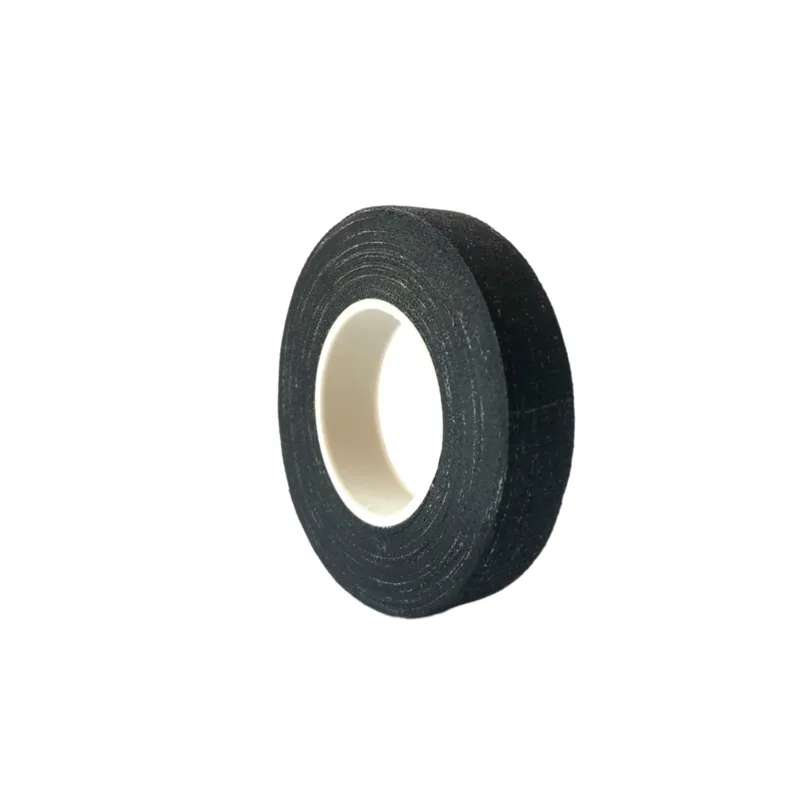The Importance of Tape Electrical Insulation in Modern Applications
In today's fast-paced technological landscape, ensuring safety and efficiency in electrical applications is paramount. One of the most versatile and widely used tools for achieving this is electrical insulation tape. This simple yet effective material plays a critical role in preventing electrical shorts, protecting wires, and ensuring overall safety in a plethora of settings ranging from home repairs to industrial applications.
Understanding Electrical Insulation Tape
Electrical insulation tape, often referred to simply as electrical tape, is made from a variety of materials including vinyl, rubber, and nylon. Each material offers different properties benefiting specific applications. Vinyl tape, for instance, is highly stretchable, durable, and resistant to moisture, making it a popular choice in both residential and commercial settings. Rubber tape, on the other hand, is known for its excellent insulating properties, ideal for situations where maximum electrical insulation is necessary.
One of the key features of electrical insulation tape is its high dielectric strength, which allows it to withstand electric fields without breaking down. This property is crucial in preventing accidental electrical shocks, equipment damage, and fire hazards, making tape insulation a non-negotiable element in electrical installations.
Applications of Electrical Insulation Tape
The applications of electrical insulation tape are vast and varied. In residential settings, it is commonly used for home repairs and DIY projects. Homeowners can use it to repair damaged insulation on wires, helping to prevent short circuits and enhancing the safety of electrical systems. Whether it's patching up frayed cords or securing connections, electrical insulation tape is a practical choice that homeowners frequently rely on.
In industrial environments, the stakes are even higher. Electrical tape is essential in safeguarding complex machinery and electrical systems that operate at high voltages. It is used extensively in the automotive and aerospace industries, where it protects sensitive wiring from abrasion and environmental damage. The tape ensures that electrical connections remain secure and insulated, thereby enhancing the longevity and reliability of the equipment.
Furthermore, electrical tape is invaluable in the telecommunications sector, where it helps maintain the integrity of signal wires. In installations where moisture and dust can be detrimental, using insulation tape can help prevent damage and ensure optimal signal transmission.
tape electrical insulation

Benefits of Using Electrical Insulation Tape
The use of electrical insulation tape comes with numerous benefits. Firstly, it is cost-effective. Compared to other insulating materials, electrical tape offers a low-cost solution for securing and insulating electrical connections. This affordability makes it an attractive option for both DIY enthusiasts and professional electricians alike.
Secondly, the ease of use makes electrical tape a preferred choice. It is lightweight, flexible, and can adhere to a variety of surfaces with minimal effort. This adaptability allows users to quickly wrap wires and secure connections without needing specialized tools or extensive training.
Moreover, electrical insulation tape provides a clean and aesthetic finish to electrical projects. Unlike bulky sleeving or conduit, tape can be neatly applied, contributing to a more organized and professional appearance of electrical installations.
Safety Considerations
While electrical insulation tape is an invaluable resource, users must still adhere to safety guidelines. It is essential to select the appropriate type of tape based on the voltage and environmental conditions of the application. For instance, higher voltage applications require specific types of electrical tape designed to handle greater dielectric stress.
Regular inspections are also critical. Over time, even the best-quality tape can degrade, especially when exposed to extreme temperatures, moisture, or UV light. Replacing worn or damaged tape is essential to maintain the safety and effectiveness of electrical systems.
Conclusion
In summary, electrical insulation tape is a fundamental component in ensuring the safety and reliability of electrical systems. Its versatility, ease of use, and cost-effectiveness make it an ideal choice for a myriad of applications. As technology continues to evolve, the importance of maintaining high safety standards in electrical installations remains vital. Thus, investing in quality electrical insulation tape not only protects investments but also safeguards lives—an essential consideration in our electrically dependent world.
-
XIANGFAN Rubber Tape-Ultimate Solutions for All Your Insulation NeedsNewsJun.24,2025
-
XIANGFAN Rubber Tape-Protection for Industrial and Residential ApplicationsNewsJun.24,2025
-
XIANGFAN Rubber Tape: Superior Safety and Sealing for Demanding EnvironmentsNewsJun.24,2025
-
XIANGFAN Rubber Tape: Reliable Solutions for Every Electrical ChallengeNewsJun.24,2025
-
XIANGFAN Electrical & Industrial Tape: Powering Reliability Across IndustriesNewsJun.24,2025
-
XIANGFAN Electrical & Industrial Tape: Excellence in Every ApplicationNewsJun.24,2025
